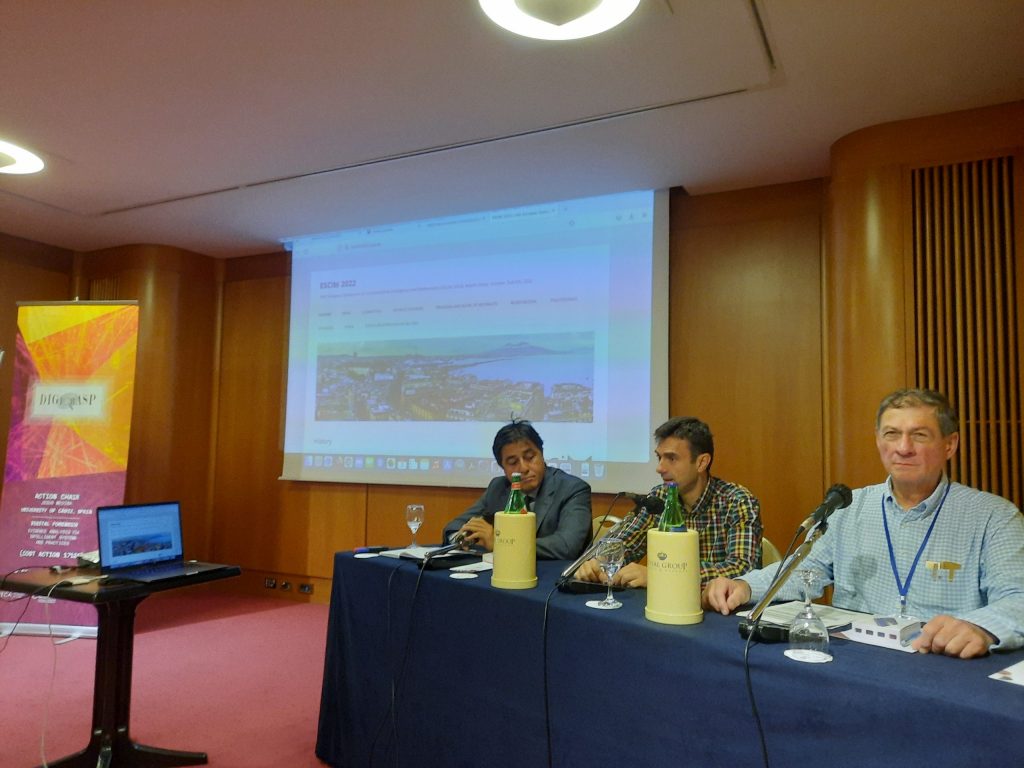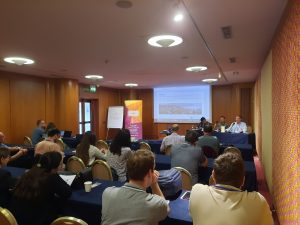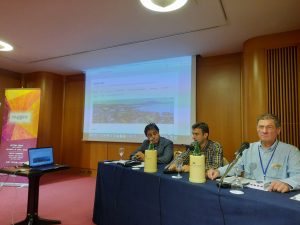The European network ‘DigForASP’ opens in Naples the 14th European Symposium on Computational Intelligence and Mathematics 3 October 2022
This event, coordinated by the UCA, is hosted by one of the SEA-EU 2.0 partner universities. In parallel, the 8th ‘Acción Cost’ meeting and a Training School will be held.
The DIGital FORensics Network: Analysis of evidence through intelligent systems and practices (DigForASP), coordinated by the Professor of Mathematics at the University of Cadiz, Jesús Medina, celebrates this week – simultaneously – the 14th European Symposium on Computational Intelligence and Mathematics (ESCIM 2022), the 6th MC meeting, the 8th Working Group Meeting of the COST Action (8th Working Group Meeting) and a new Training School (6th MC meeting), with the 6th MC meeting, the 8th Working Group Meeting of the COST Action and a new Training School at the University of Naples Parthenope (Italy). The programme includes parallel collaborative sessions and lectures by academic researchers and specialists from more than 30 different countries.
The Training School, focused on Mathematics, Computer Science and Digital Forensics Tools, has been very well received by young students from different countries, with the aim of acquiring the necessary knowledge and skills to foster synergies between Digital Forensic Analysis (FDA) and Artificial Intelligence (AI) researchers and, in turn, achieve the main objectives of the Action. Students can also attend the conferences given at the 14th edition of ESCIM 2022 in Naples, where scientists working in mathematics and computational intelligence meet to strengthen cooperation to solve problems in different fields (renewable energies, digital twins, smart cities, etc.), and especially in the themes of the renewed SEA-EU 2.0 project, which is also led by the University of Cadiz.
The coordinators of the International Symposium, the professors of the UCA and the Budapest University of Technology and Economics, Jesús Medina and László T. Kóczy, respectively, and the Vice-Rector for International Relations of the University of Naples Parthenope and one of the new partner universities of the European University of the Seas, Gabriele Sampagmaro, presided over the opening ceremony in Naples.
Gabriele Sampagnaro will give an introduction of the project to the attendees, and Luigi Romano, a renowned researcher from this Italian university, will give a talk and participate in the round table Interactions between computational intelligence and mathematics in the framework of SEA-EU 2.0, together with László T. Kóczy, Manuel Ojeda Aciego, Raffaele Olivieri and María Eugenia Cornejo.
At the Working Group meeting, the leaders of each Working Group will present the current status of each group, as well as new objectives and proposals for the future. In its sixth edition, they will present the latest advances of the Action, evaluating the current status and the fulfilment of the goals established in the fourth period (GP4). At the same time, the proposals for the activities to be carried out before the end of the project will be studied, as well as the new objectives set for the fifth and last phase of this project (GP5).
The DigForASP project is supported by the European Cooperation in Science and Technology (COST) programme, funded by the European Union’s Horizon 2020 Framework Programme, which seeks to strengthen scientific and technical research in Europe by funding the establishment of collaborative networks between researchers. It constitutes the largest European intergovernmental network for the coordination of scientific and technical research in the field of digital forensics, involving more than 200 specialists and researchers from 36 countries.
Since its approval in April 2018, this project – led by the UCA – has created a scientific network that integrates universities from Albania, Germany, Austria, Belgium, Bosnia and Herzegovina, Bulgaria, Croatia, Cyprus, Czech Republic, Denmark, Slovakia, Slovenia, Spain, Finland, France, Greece, Holland, Hungary, Ireland, Israel; Italy, Latvia, Malta, North Macedonia, Montenegro, Norway, Poland, Portugal, Romania, Serbia, Sweden, Switzerland, Turkey, United Kingdom and Ukraine.




